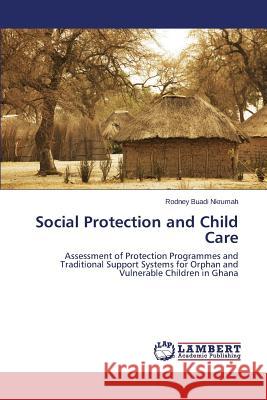Social Protection and Child Care » książka
Social Protection and Child Care
ISBN-13: 9783659817021 / Angielski / Miękka / 2015 / 144 str.
Ghana's population of Orphan and Vulnerable Children (OVC) is undergoing gradual increase. At the same time, traditional systems of protection which forms the bane of care and support for the vulnerable in society is widely seen as withering off under the continuous construct of urbanization and social change. With the enrolment of formal protection programmes to tackle livelihood risks and vulnerabilities, this book assesses how formal and traditional protection arrangements affects the nature of care OVC receive, using the Lower Manya-Krobo district as a case. A qualitative research design employing key informant interview and list of close-ended questions was used to collect primary data. The findings indicate that while formal protection programmes play essential role in meeting OVC's education, food and health care needs, traditional protection arrangements embodied in foster care initiatives by traditional Queen Mothers formed the heart of family-oriented care for OVC. Conclusions are that formal child-focused social programmes would have immense protective outcomes for OVC if policy design and implementation targets such traditional initiatives as provided by Queen Mothers.
Ghanas population of Orphan and Vulnerable Children (OVC) is undergoing gradual increase. At the same time, traditional systems of protection which forms the bane of care and support for the vulnerable in society is widely seen as withering off under the continuous construct of urbanization and social change. With the enrolment of formal protection programmes to tackle livelihood risks and vulnerabilities, this book assesses how formal and traditional protection arrangements affects the nature of care OVC receive, using the Lower Manya-Krobo district as a case. A qualitative research design employing key informant interview and list of close-ended questions was used to collect primary data. The findings indicate that while formal protection programmes play essential role in meeting OVCs education, food and health care needs, traditional protection arrangements embodied in foster care initiatives by traditional Queen Mothers formed the heart of family-oriented care for OVC. Conclusions are that formal child-focused social programmes would have immense protective outcomes for OVC if policy design and implementation targets such traditional initiatives as provided by Queen Mothers.











